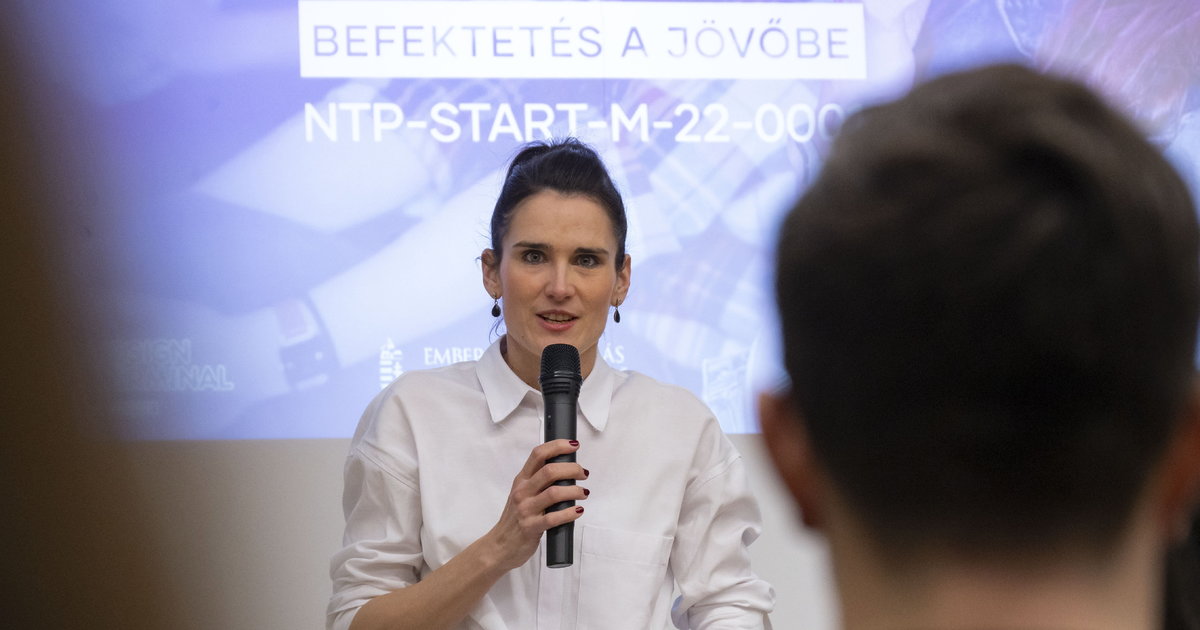The cloud is everywhere and helps overcome crises – Microsoft Hungary
The cloud has become one of the buzz words of the decade. Breaking out of the discourses of experts, it entered the public discourse, and even conquered the film world and pop culture. Not by chance.
Countless things that we use in our everyday lives can only be provided with cloud technology and data center support. Microsoft’s data centers operate quietly around the clock and are responsible for a wide variety of critical services: for example, remote work, video calls, life-saving interventions by doctors, or basic services such as grocery shopping, online banking or public administration that are now unthinkable without cloud technology. In the territory of the European Union, more than 90% of the operations running in Microsoft’s data centers are supported by public and state subsidies.
All these and countless other conveniences that define our daily lives are available through data centers. These are actually facilities that house tens of thousands of connected servers and the equipment needed to ensure continuous operation. Microsoft operates an entire global network of data centers, which can take over tasks and provide continuous availability in the event of a crisis in some elements – technical failure, power outage, natural disaster, terrorist attack, or even war.
The pandemic gave a great impetus to the expansion of cloud technology, and to the players in education and the economy to survive the period of closures. The emergence and spread of the hybrid work model is due to the cloud. Nowadays, the cloud can be counted on to overcome the energy crisis and to maintain the operability of critical infrastructure in the current, highly unpredictable situation.
The rise of the cloud will, according to all indications, continue in the future, as the range of services where we rely on the cloud (data storage, watching TV, etc.) will continue to develop.
A report According to the Global Cloud Technology Market, the turnover of the global cloud technology market will increase to 1.55 billion dollars by 2030, which means that between 2022 and 2030, this market will grow by an average of 15.7 times per year. by 2025 the more than 85% of organizations will operate in the cloud, which will be essential for the implementation of their digitization strategies. Gartner estimates that cloud platforms will decommission more than 95% of new digital solutions this year, compared to 30% in 2021.
The transition to the cloud is, of course, taking place at different rates in different parts of the world. It measures the development of the digital economy and society DESI according to the latest index data, more than 60% of businesses in Sweden, Finland, Denmark and the Netherlands use cloud services; they are followed by Italy and Estonia with more than 50%; and among the drivers are Lithuania, Hungary, Poland, Greece, Romania and Bulgaria – in the latter, the proportion of organizations using cloud services is below 15%. There is therefore plenty of room for development in the Central and Eastern European region, which – in the light of recent events – is becoming more and more urgently needed.
Despite the important role data centers play in many areas of life, most people are not even aware of their existence, points out Bill Briggs in a recent blog post. Data centers play a key role not only in creating the competitiveness of businesses and in guaranteeing their smooth operation, but also in ensuring that countries can preserve their sovereignty and that industry can fight the current energy crisis and make its operations more sustainable. Europe is now preparing to get through it, excellent experts and energy consultants are drawing attention to data centers, since, for example, thanks to the hybrid working they support, fewer people go to work and perhaps fewer office buildings will need to be regularly heated.
The cloud helps manage energy shortages
energy prices are skyrocketing, governments and companies are frantically searching for ways to reduce energy consumption.
No matter how innovative they come up with, they will more than likely need cloud technology to implement them. Intelligent building engineering systems – for example, you are the one that continuously regulates the internal temperature of the facilities modernizing energy management systems – use cloud computing capacities and cloud-based artificial intelligence solutions.
For example, Denmark’s Vestas Wind Systems is using it successfully artificial intelligence and relies on the computing capacity of the cloud to produce more energy with its wind turbines, the so-called through a “wake steering” process. The company uses Microsoft Azure’s high-performance processing (HPC) solution and Azure Machine Learning. So does Qubit Engineering optimized wind power generation with the help of Azure Quantum, it can produce more energy with the same number of wind turbines.
The IT infrastructure in the data center in itself leads to significant energy savings: there is no need to maintain your own on-site server park, which needs to be heated and cooled. Microsoft is one According to his 2018 study using the cloud can increase the energy efficiency of businesses by 22-93% compared to on-premise infrastructure. The improvement – and thus the reduction of the carbon footprint – mostly stems from better economies of scale, but the low power consumption of Microsoft’s data centers and the outstanding efficiency of the equipment and data center infrastructure play an important role in this. THE Microsoft Cloud for sustainability software is primarily designed to monitor and reduce emissions, but it is also excellent for keeping energy consumption under control.
Data protection in everyday life
During the pandemic, the number of companies that switched to a mobilized, cloud-based operation increased. This, in turn, tempted hackers to do more, primarily phishing attack take action against individual users and organizations. Because of this, the issue of cyber security has become even more prominent, and the demand for large cloud platforms like Azure, which need the necessary protection for organizations, has increased.
Azure also offers a solution to cyber attacks because Microsoft generally applies much stricter security standards than the companies and institutions themselves, and is able to mobilize huge resources for cyber security. therefore, solutions such as Azure Sentinel and the Defender Exploit Guard they have become indispensable elements of an effective, multi-level protection system.
Nowadays the cloud and data centers guarantee smooth and secure operation even in war-torn areas. Microsoft Cloud for Sovereignty helps public institutions with high security needs to stay at the forefront of innovation. The digitization of public services promotes the digital transformation of the entire national economy. Accelerating digitization can help a lot in avoiding, or at least mitigating, economic recession, and – as Estonian is also shown by the example where the infocommunications sector contributes to the country’s gross national product to an extremely large extent – it can set the economy on a stable growth path.
Microsoft’s data centers are undoubtedly important pillars of the modern, encouraging development in almost all areas of life in a socially inclusive manner.




